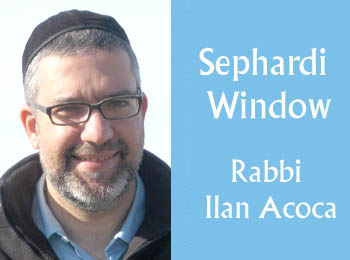The Talmud (Moed Katan 27b) teaches that it was customary in some localities to blow the shofar to announce a death in the community and to summon citizens to attend the funeral.
An additional practice that took place during a funeral was that women used to wail (Ketubot 46b).
Today, these practices are not very common, but not too long ago, they were relevant. My mother recalls women wailing as a child in Morocco.
Why were these practices incorporated into funeral services? What is their significance?
Some say that it was a practical way to gather people to attend the funeral.
The Maavar Yabok explains that it was a way to protect the living people from the angel of death.
I believe the shofar was a wake-up call for people to realize their mistakes, to repent and to return to God.
The great Sephardi sage, the Rambam, writes in his book Mishne Torah (Laws of Repentance 3, 4) “Arise from your slumber, you who are asleep; wake up from your deep sleep, you who are fast asleep; search your deeds, repent, and remember your Creator.
“Those of you who forget the truth because of daily trivialities, indulging throughout the year in the useless things that cannot profit you nor save you, look into your souls, amend your ways and deeds.
“Let everyone give up his evil way and his bad purpose.”
I believe that a funeral is a time of reflection and repentance. When someone passes away, it affects the family, the friends and the community. When the shofar is blown, the sound penetrates the hearts. It enables us to realize how vulnerable we are, how life is so fragile and how every minute counts.
Every loss is difficult. However, when someone passes away at a young age, leaving a wife and family, it’s even more difficult. When someone who affected people’s lives positively passes away, it’s really difficult to accept. When a leader of a community passes away, it’s extremely painful.
We do not know the ways of God, but through our faith, we learn that “the ways of God are righteous” (Hosea 14).
I recently lost a good friend, Rabbi Yosef Oziel, the beloved Rabbi of Hechal Shalom Sephardic Congregation in Miami, Fla. He was someone who changed people’s lives and affected his community positively.
When Rabbi Shlomo Amar, chief Sephardi Rabbi of Israel, eulogized Rabbi Oziel, he said that even though Rabbi Oziel was a young man, he was able to achieve so much during his short time in this world.
Each one of us should realize that “the day is short and there is a lot to be done” (Ethics of our Fathers).
As we enter the month of Elul, approaching Rosh Hashanah, it’s time to reflect and change our ways.
Yehi zichro baruch. May his memory be for a blessing.
